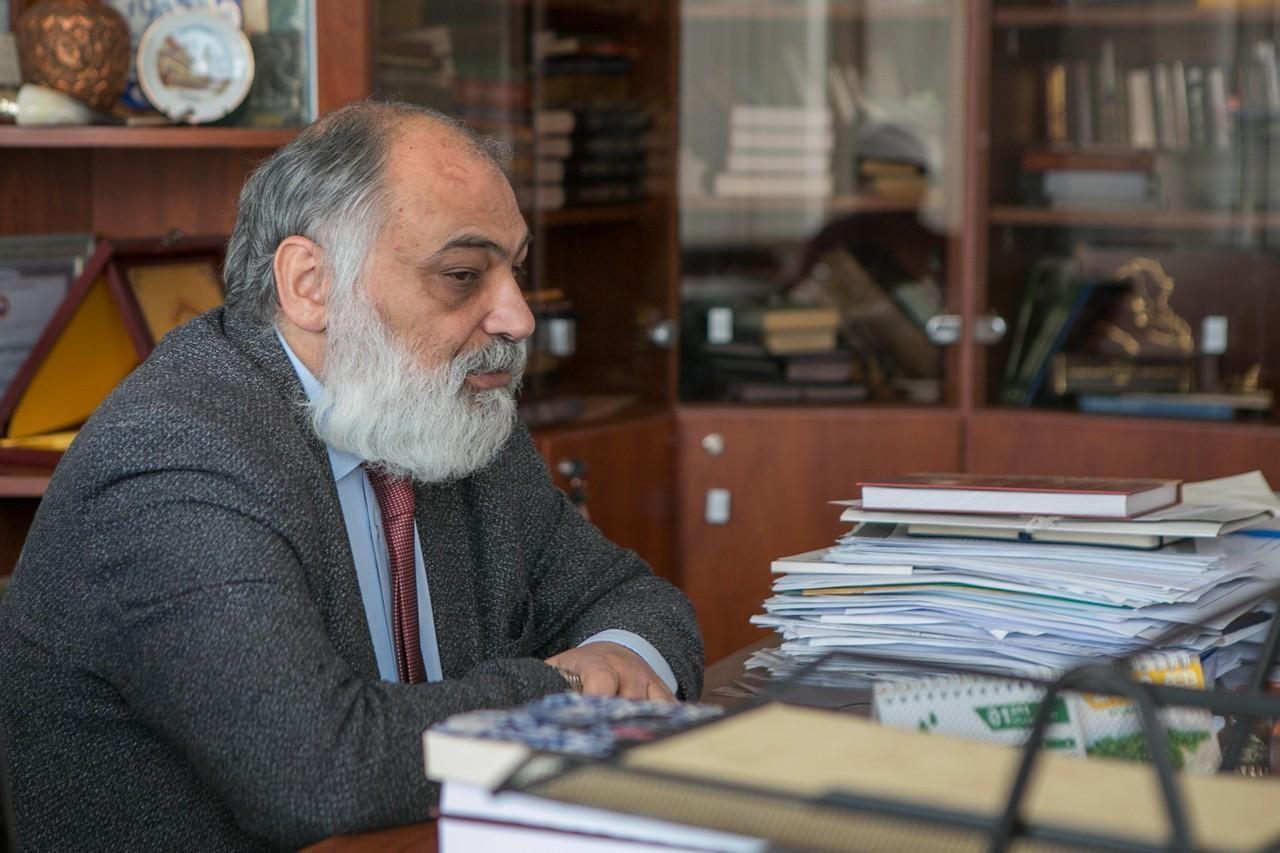
Turkish Studies Scholar Says Armenia-Turkey Talks Will Fail; Warns of "Red Lines" for Pashinyan Government
Hetq recently talked with Prof. Ruben Safrastyan, a member of the Armenian National Academy of Sciences, who specializes in Middle Eastern history with a focus on Turkey, about the recent thaw in Armenia-Turkey relations following the 2020 Karabakh war.
Safrastyan said that while Armenian National Assembly Vice SpeakerRuben Rubinyan, appointed Armenia’s special representative in the recently launched Armenia-Turkey normalization talks, lacks the experience of his Turkish counterpart Serdar Kılıç, it will be the leaders of the two countries making the hard decisions.
“Yes, our representative is inferior to the Turkish representative in terms of experience. This is obvious, it is a fact. But, in the end, considering what I said, if there are important issues that need to be discussed, decisions to be made, it will be by the leaders of the countries. Here, the person of the negotiator is relegated to the background,” Safrastyan told Hetq.
Safrastyan said that Kılıç, a former Turkish ambassador to the U.S., not only has extensive diplomatic experience but is fully informed of Turkey’s foreign and domestic policy interests.
“Turkish Special Representative Serdar Kılıç not only has extensive diplomatic experience but has also been the Secretary of the Turkish National Security Council for several years. The council discusses the most important issues of Turkey's foreign and domestic policy, and it is the secretary's responsibility to prepare the agenda for discussions. In other words, he is a man who is fully aware of the most important issues of Turkey's foreign and domestic policy,” Safrastyan said.
Safrastyan argued that Turkey is actively pursuing its interests in the South Caucasus and wants to show that it is interested in normalizing relations with Armenia.
Consequently, Safrastyan believes that this is why Turkey announced that it would participate in the talks without preconditions.
“It is known that Turkey has always put forward preconditions connected to both Armenian-Turkish and Armenian-Azerbaijani relations. Why did Turkey suddenly announce this time to negotiate without preconditions? It’s a tactic so that the negotiations aren’t deadlocked from the start,” Safrastyan told Hetq.
He argued that the fact that Turkey issued a statement positively assessing the first round of talks in Moscow confirms his belief that Ankara wants the talks to continue.
“As I mentioned, Turkey has been interested in the negotiations from the very beginning. And this is the reason why the approach is positive. Both sides have confirmed their desire to continue the talks,” Safrastyan said.
Safrastyan said the fact that Serdar Kılıç will report directly to Turkey’s vice-president and not the foreign ministry indicates that Turkey is planning long-term talks on a wide range of issues.
He said that there are several “red lines” that Armenia must not cross in the normalization talks, adding that Turkey not only supported Azerbaijan in the 2020 Artsakh war but that it is the main aggressor.
“We are talking about the policy of recognition and condemnation of the Armenian Genocide, the right of the people of Artsakh to self-determination, that the Republic of Armenia must help and protect the Artsakh Republic in every way, as well as the Kars Treaty. The Turks demand that Armenia reaffirm its commitment to the Kars Treaty. That should not be done. I am convinced that it was an unfair deal that was imposed on us. The fourth precondition that will be a matter of discussion, I am sure, is the so-called Zangezur Corridor. Here, too, we must reaffirm our position that no corridor talk is acceptable to us.”
Safrastyan said such “red lines” cannot be violated because they go to the heart of Armenian identity.
“If we make concessions on those issues, it means we give up a part of our identity. It is simply unacceptable for us.”
Safrastyan sounded a pessimistic note about the success of the latest round of normalization talks between Yerevan and Ankara.
“My general assessment is that the previous three attempts ended in failure. This is the fourth and given the conditions of our defeat and the intensification of Turkey's aggression in our region, I do not expect a positive outcome.”
Photo by Ani Sargsyan
 Videos
Videos Photos
Photos
Write a comment